Picture your two outstretched hands, palms up and slightly cupped, weighing the differences. Left, or right? Ask yourself these two questions: Wood deck or synthetic materials? Composite or natural wood? Will the contents of one hand outweigh the contents of the other? Which selection is going to come out the winner?
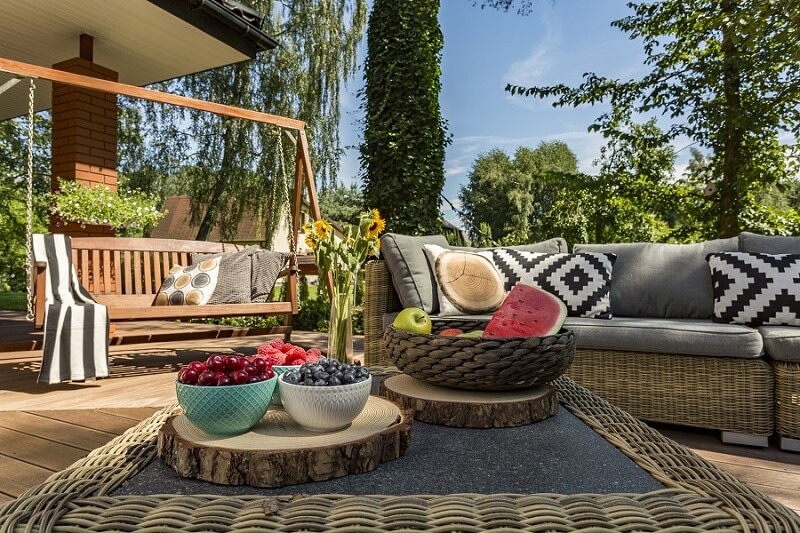
Archadeck of Birmingham is here to help you work through this decision as you get ready to build a deck or a combination deck and porch outdoor living space. We know it’s a hard decision. While it’s one we hear about and talk about almost every day, as your Birmingham deck builder, we know it could be a new decision for you, the homeowner. Stop for a moment and think about these questions.
How much do you know about composite and synthetic decking?
How much do you know about wood decks?
What kinds of decks do your friends have?
What are their experiences with their decks?
Have you owned a deck before, or will this be your first one?
WHAT IS SYNTHETIC OR COMPOSITE DECKING?
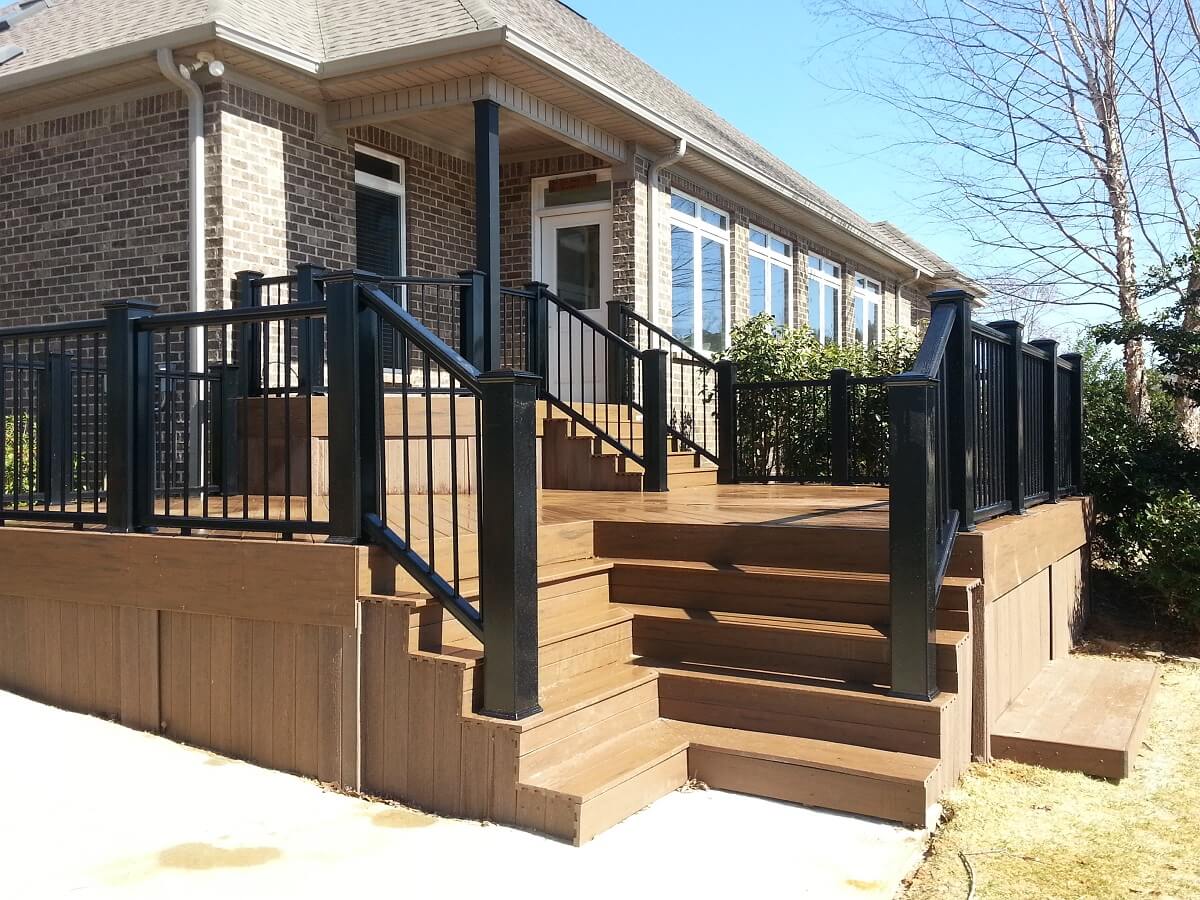
These two words are sometimes used interchangeably, but there can be differences.
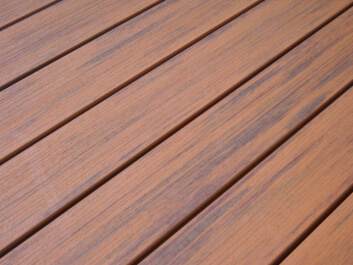
- Purely synthetic decking is made of PVC. AZEK makes synthetic decking boards and railing systems, probably the most durable of all decking products on the market.
- When people refer to composite decking, they are usually referring to products made by AZEK and TimberTech, among others. Composites are synthetic but not made of PVC. Composite decking boards are formed from a mixture of plastic and wood fibers. Some of these manufacturers also produce a composite board that is capped on three or four sides. The cap, or shell, provides an extra layer of protection and durability. These boards are called capstock and are usually the most expensive composite decking products.
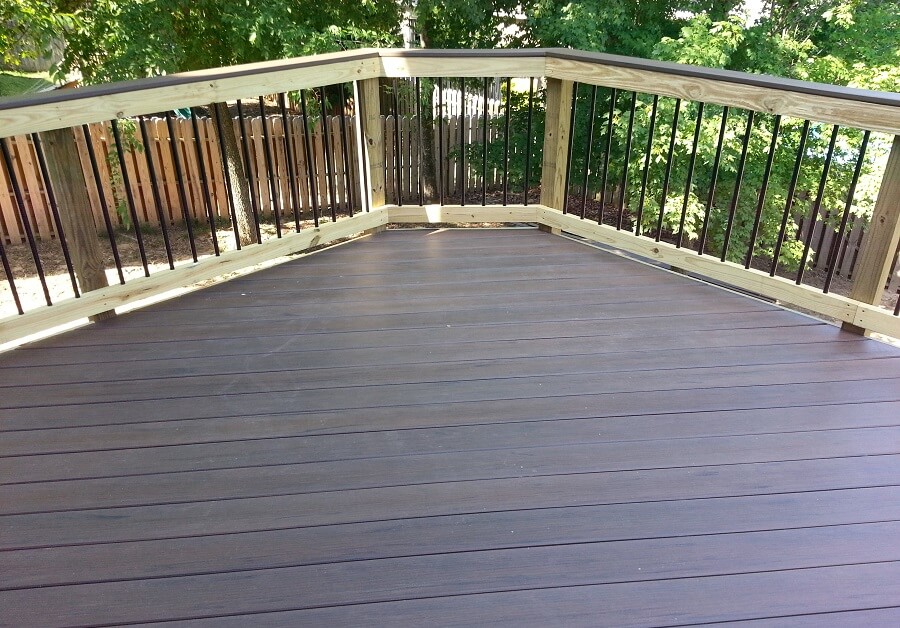
- While all synthetics and composites are more expensive than pressure-treated wood, several of the composite manufacturers offer a few different product lines at different price points. Some composite decking is less expensive than some other composite decking.
- The technology for producing composite and synthetic decking materials is constantly improving. Newer product lines may look more “like wood” — with wood-like grain, texture and streaking — than older ones. You can get more information from the various manufacturers’ websites about their newer product lines.
THE DIFFERENCES: SYNTHETICS/COMPOSITES VS. WOOD DECKS
Wood Decks (Pressure-Treated Pine) — Pros and Cons
PRO:
Less expensive
Looks like natural wood (because it is)
Can be stained if you want a specific color
Pressure-treated wood may be covered by warranty against damage by fungal decay or termite infestation (“Lifetime Limited Warranty”)
Scratches to wood deck can be sanded out
CON:
Begins to deteriorate within the first year or two
Requires extensive annual maintenance: Sanding, staining and sealing ̶ spending either money or time (or both) to keep the deck looking good
May only last 10-15 years before replacement is needed
No warranty against fading, cracking, cupping, and warping
Sanding out scratches will also require staining
Synthetic/Composite Decks — Pros and Cons
PRO:
Wide range of colors from which to choose
Most manufacturers offer railing systems to match their decking boards
Warranty usually covers rotting, splitting, splintering, insect damage and material defects
Resist fading, staining, scratching and mold
CON:
More expensive than wood
May not look or feel like “real wood”
While these boards resist scratches, scratches cannot be sanded out
HOW DO YOU DECIDE? SYNTHETICS/COMPOSITES VS. WOOD DECKS
Here are some questions to help you decide:
1. Which type of material do you prefer to look at and touch? If you have a strong preference for the aesthetics of one type of deck over another, and price is not an issue, that preference might supply your answer. Select the decking material that looks and feels the best to you. For some people that will be wood; for others it will be synthetics. Remember, this applies if price is not an issue. That means if you prefer wood decks, you can afford to pay someone to handle the annual maintenance.
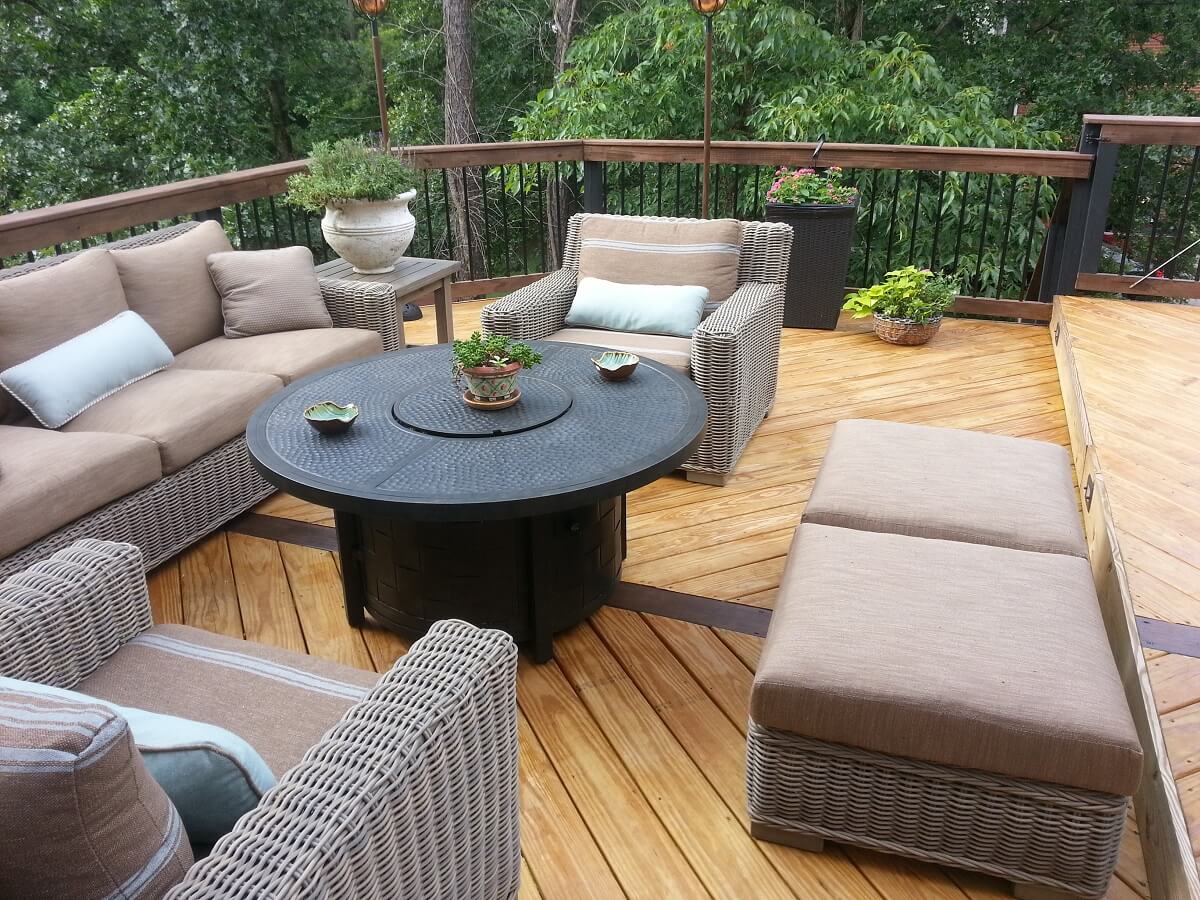
2. How do you feel about the annual chores of wood deck maintenance, including sanding, staining and sealing? If you don’t want to spend your valuable free time on these chores, can you afford to pay someone else to do the work?
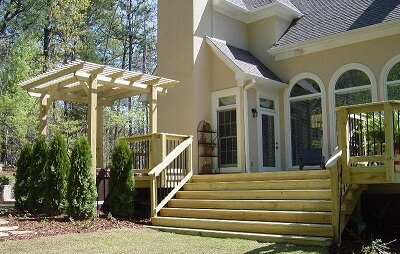
3. How long do you plan to stay in your current home? A general rule of thumb is that if you’re going to be in your current home for five years or more, a synthetic/composite deck can be a wise investment. You will recoup much of the cost of a composite deck in what you will save on maintenance costs and time spent working on the upkeep of a pressure-treated wood deck.
Archadeck of Birmingham would like to answer any questions you have about decks and decking materials. Call Archadeck of Birmingham today at (205) 576-5780.
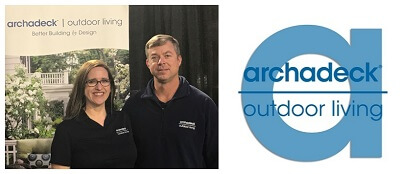
— Derek & Carissa Crews, owners Archadeck of Birmingham